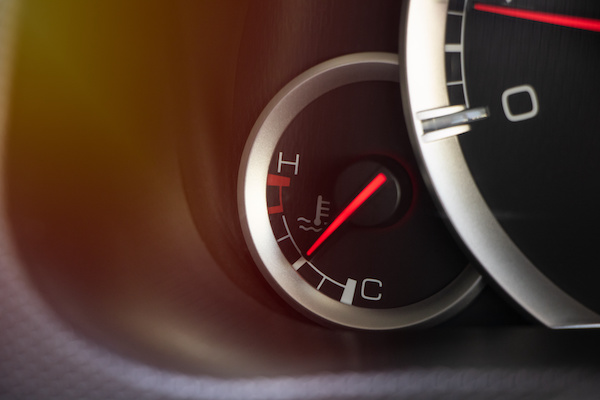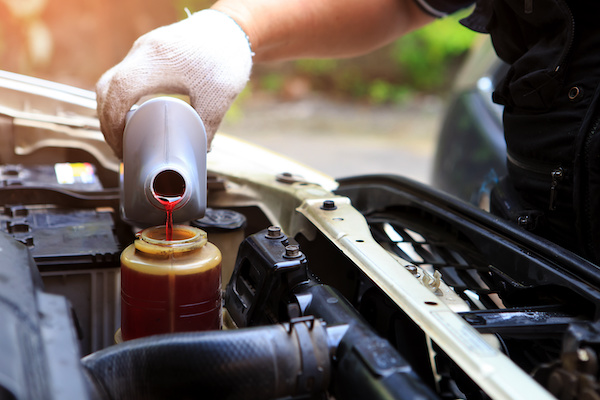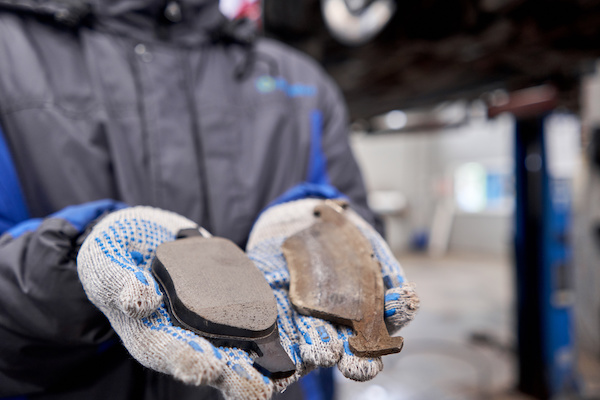Posted on 7/16/2021

You might love the summer heat, but who's to say that your car does too. The high temperatures can do some severe damage to your engine if you aren't careful. It can cause your engine to overheat, leading to a car breaking down and compromising your safety. Though you can't necessarily control the sun, you surely can take preventive measures to prevent your vehicle from overheating. 1. Park Your Car in the Shade Parking in the shade not only keeps the temperature in the cabin cooler but also helps to keep your engine from overheating as well. If you are fortunate to have a garage at home, use it! If a shady parking spot isn't available to you, then try sun shades. 2. Use Sun Shades Sunshades are a great alternative if you have trouble finding shady parking spots. This accessory is equipped with UV heat shields that will keep the interior from getting super-hot while protecting its quality from the damaging effects of the sun. 3. Leave ... read more
Posted on 6/28/2021

Most drivers are aware of their oil change and even brake fluid. However, it is often forgotten or even unknown to most people when it comes to the power steering fluid. The power steering fluid is a hydraulic fluid that powers the steering system. Similar to your other fluids, changing out your power steering fluid is an essential maintenance practice. Though it doesn't burn off with combustion as motor oil does, it can get contaminated, with dirt and sludge, over time. When the power steering fluid gets dirty, it adds pressure and stress to the power steering pump. In severe cases, it can lead to the failure of the entire steering system. Signs That It's Time to Get Power Steering Fluid Replaced DARK FLUID After running your car for a few minutes, open the hood and remove the dipstick. The color of fresh power steering fluid should be bright red and clean. If you notice that the solution is dark, dirty, or has a charred smell, then your vehicle is at risk o ... read more
Posted on 5/25/2021
.jpeg)
It can be worrying if your vehicle is having trouble starting but it doesn't always mean that there is a serious problem. Sometimes a simple electrical fault in the wiring to the battery can be to blame and it's important to understand the different reasons why a vehicle won't start to know how to diagnose it and when to seek maintenance immediately. Some of the most common causes of a vehicle having trouble starting include: Electrical fault Failing battery Faulty alternator Faulty starter motor Defective ignition switch Clogged fuel filter Electrical Faults and Failing Batteries A battery that is beginning to fail can make it difficult but not impossible to start your vehicle. There may be corrosion or damaged contacts to blame for this and you should check the physical condition of your vehicle's battery to see if there's any indication of this. Another related problem is a fault in the electrical system of your vehicle and this might trigger the electri ... read more
Posted on 4/26/2021

Brake pads and brake shoes have their differences but both combine to accomplish the same job. Brake pads are a type of anti-lock braking device that helps prevent the wheels from locking during a stop or slow down. Brake shoes, on the other hand, are the type of brake system accessory that provides traction and control. In these systems, brake shoes are placed over a rotary caliper on a drum. The pads on the shoe are squeezed by a rotary caliper attached to a drum to produce the friction necessary to halt the vehicle. Most cars come with this type of brake system but many older cars do not. There is a common misconception that both brake pads and brake shoes are interchangeable. This is simply not true. To begin with, brake pads have a different compound composition than brake shoes. They also wear out faster, which causes them to lose their effectiveness at a quicker rate. This leads to drivers wanting to apply more brake force to better control their vehicles. One of the main diff ... read more
Posted on 3/17/2021
.jpeg)
Gasoline direct injection engines have their advantages. They produce more power for your engine and do their part to reduce carbon emissions. They have replaced the fuel injectors that were so commonplace in almost every vehicle for the last several decades. They put the exact amount of gas needed right before the ignition spark, which helps with better gas mileage and fuel efficiency. Unlike classic fuel injectors, gasoline direct engines don't use a port fuel injection where gas is fed above the valves, which makes them vulnerable to carbon buildup inside your engine. This is something that should be looked at when suspected, as it can result in valves being burned off without warning. Thankfully, there is a new service being offered to treat this type of problem. Routine oil changes done on time can clear up this kind of harmful grime and buildup, especially when using synthetic oil. This will help greatly in removing these contaminants from the air filter, which should be cha ... read more